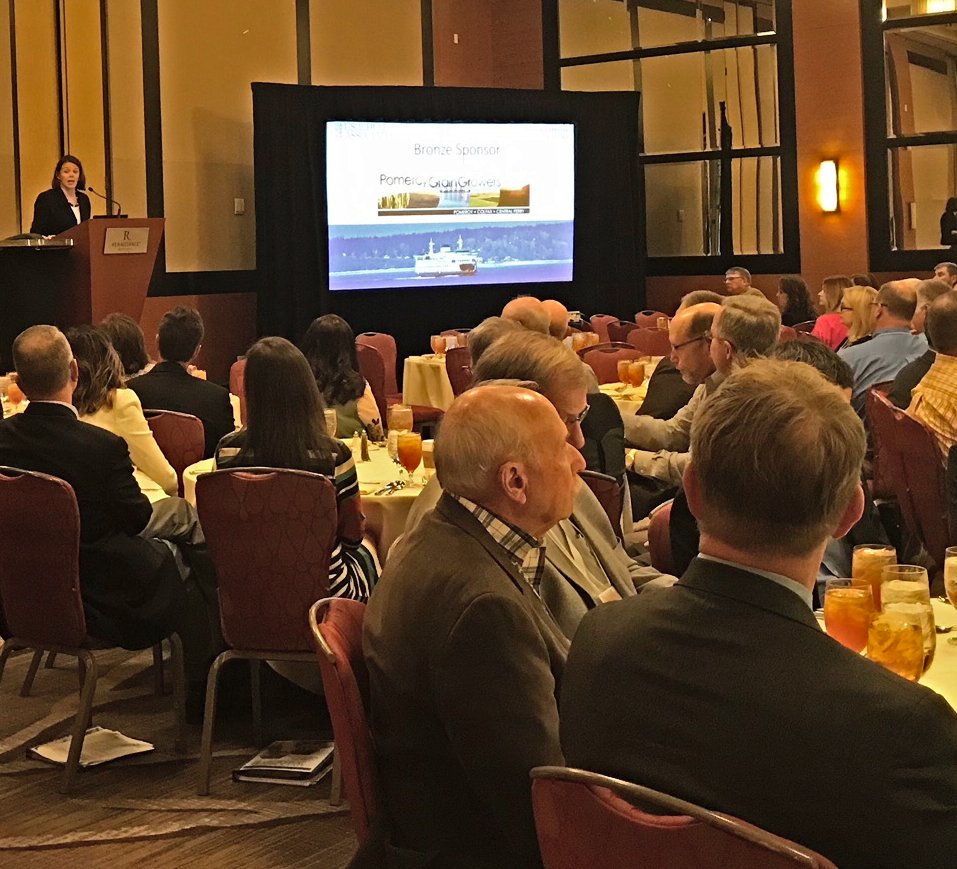
Last weekend, I was pleased to provide remarks at the U.S. Wheat Associates annual summer board meeting in Seattle with representatives from across the U.S. This event was a timely opportunity to highlight the Port’s perspective on how trade is impacting us here in the Pacific Northwest.
The Port and the wheat industry share a deep commitment to accessing foreign markets. The roughly 3,715 wheat and barley farms in Washington state — almost all owned and operated by local families — export 85-90 percent of their product internationally. The Port is similarly export-focused: last year, the Northwest Seaport Alliance — our marine cargo operating partnership with the port of Tacoma — and Seattle-Tacoma International Airport exported a combined $37 billion in goods.

Trade policy has been important to me for a long time. Before returning home to Washington state, I spent nearly 10 years working in Washington DC, including serving as the Director of the National Export Initiative for President Obama. The goal was ambitious — double US exports over 5 years — but it was well-founded. We all win when American farmers, producers, entrepreneurs, and businesses can sell more goods to more people around the world. That is why the Port supports trade that matches increased market access with rules to support workers and the environment.
Since the last recession, Washington state has worked to boost foreign trade through a mix of strategies, and I was proud that Washington state was one of the first to sign onto a pilot project with the National Export Initiative. Our home state is seeing the benefits of that work. Washington small businesses export at four times the national average, and these businesses are significantly more likely to stay in business and hire new workers.
Unfortunately, these are challenging times for supporters of a rules-based global trading system, with new tariffs and retaliations announced every day between the U.S. and our major trading partners. It is U.S. businesses and consumers who will see increased costs from higher tariffs, and it is our farmers, ranchers, retailers, and manufacturers who are at risk for reduced opportunities to export everything from airplanes to apples.
There are justifiable concerns about the trade practices of countries like China. But, tariffs should be a measure of last resort and, when necessary, be carefully and narrowly targeted to address the problem and minimize the unintended impacts on American producers and consumers. I continue to believe that engagement and negotiation is the best path to address market barriers and level the playing field in global trade.
As the mom of two young girls, I often reflect on the state of the globe they will inherit. Trade, technology, and travel have — in many ways — “shrunk” our globe and yet fierce global economic competition poses unique challenges. Our economic future is tied to access to global markets. The reality is that more than 95 percent of all consumers live outside the United States. At the Port of Seattle and the Northwest Seaport Alliance, we are committed to advocating for more and better opportunities in the global economy.


